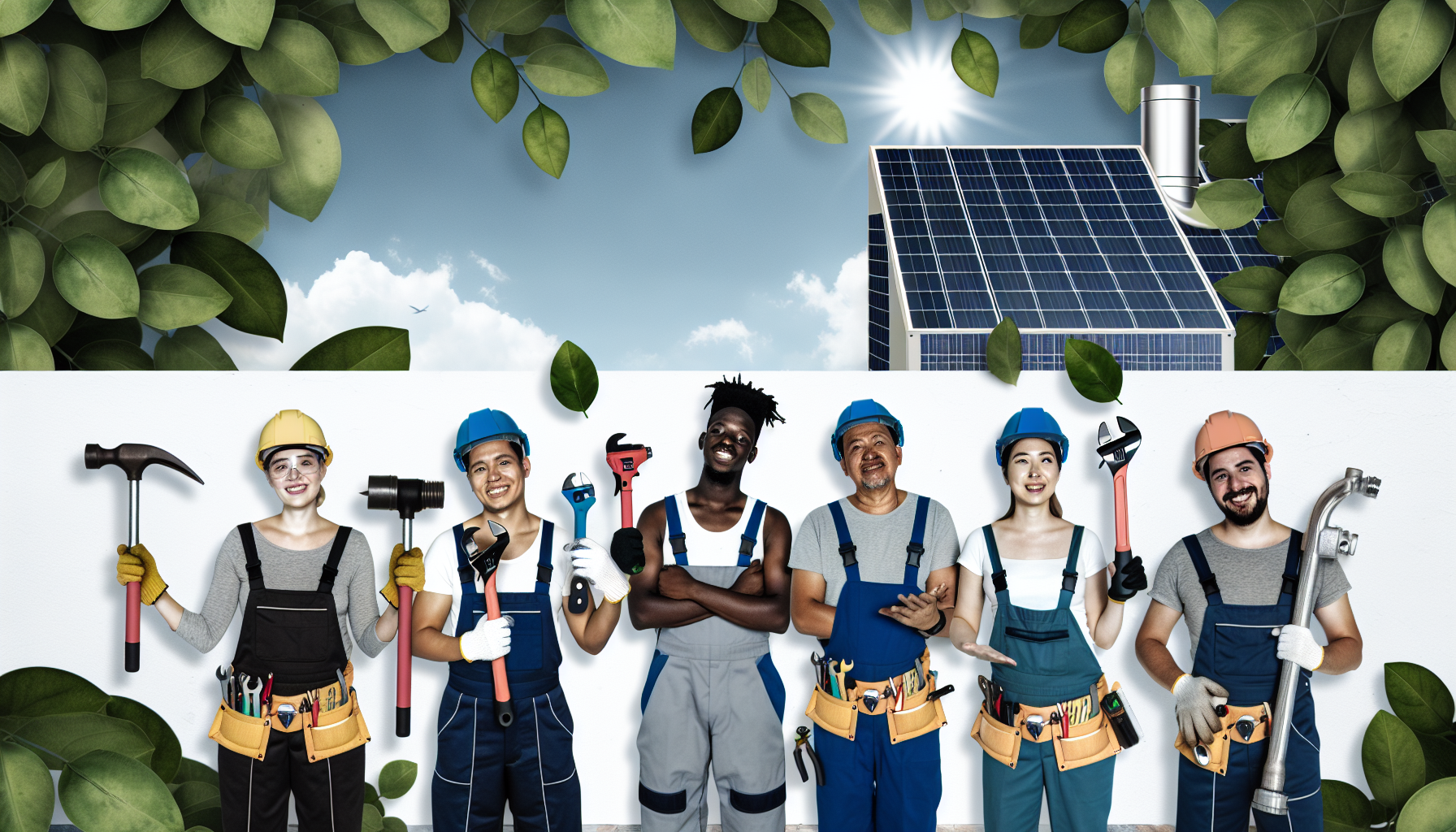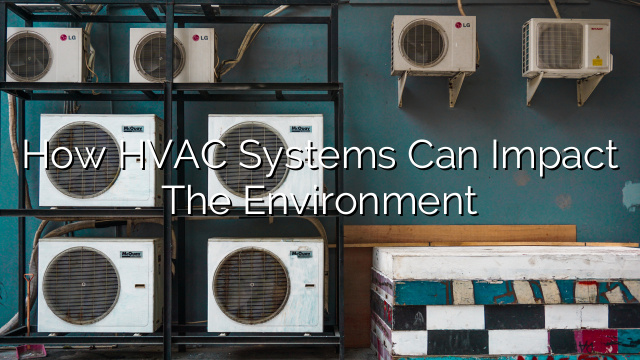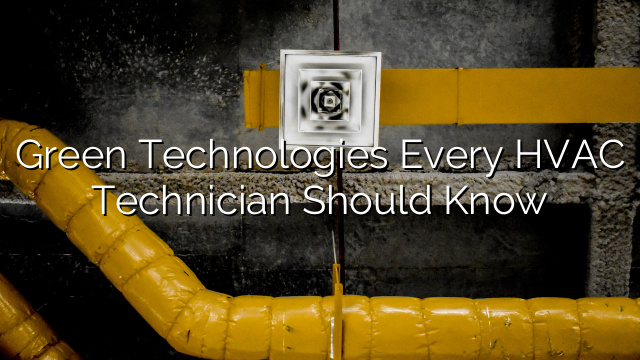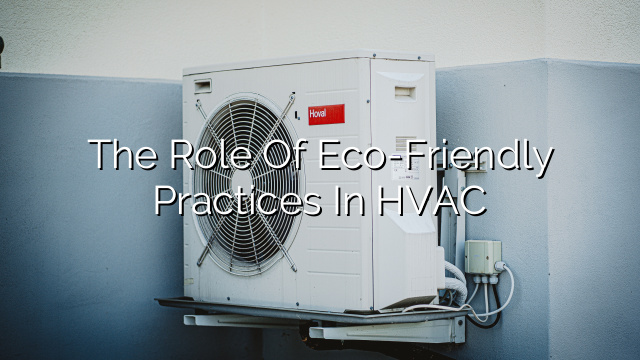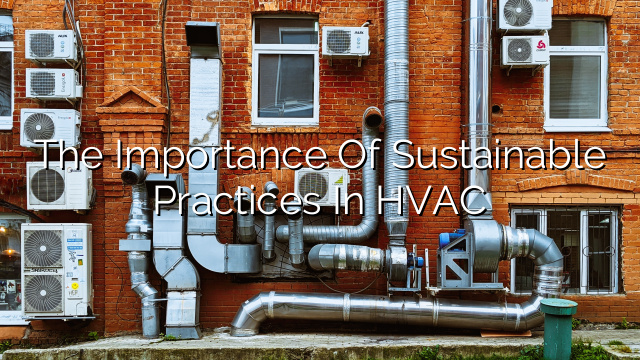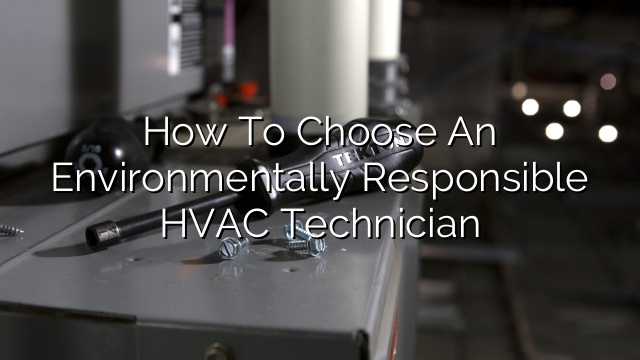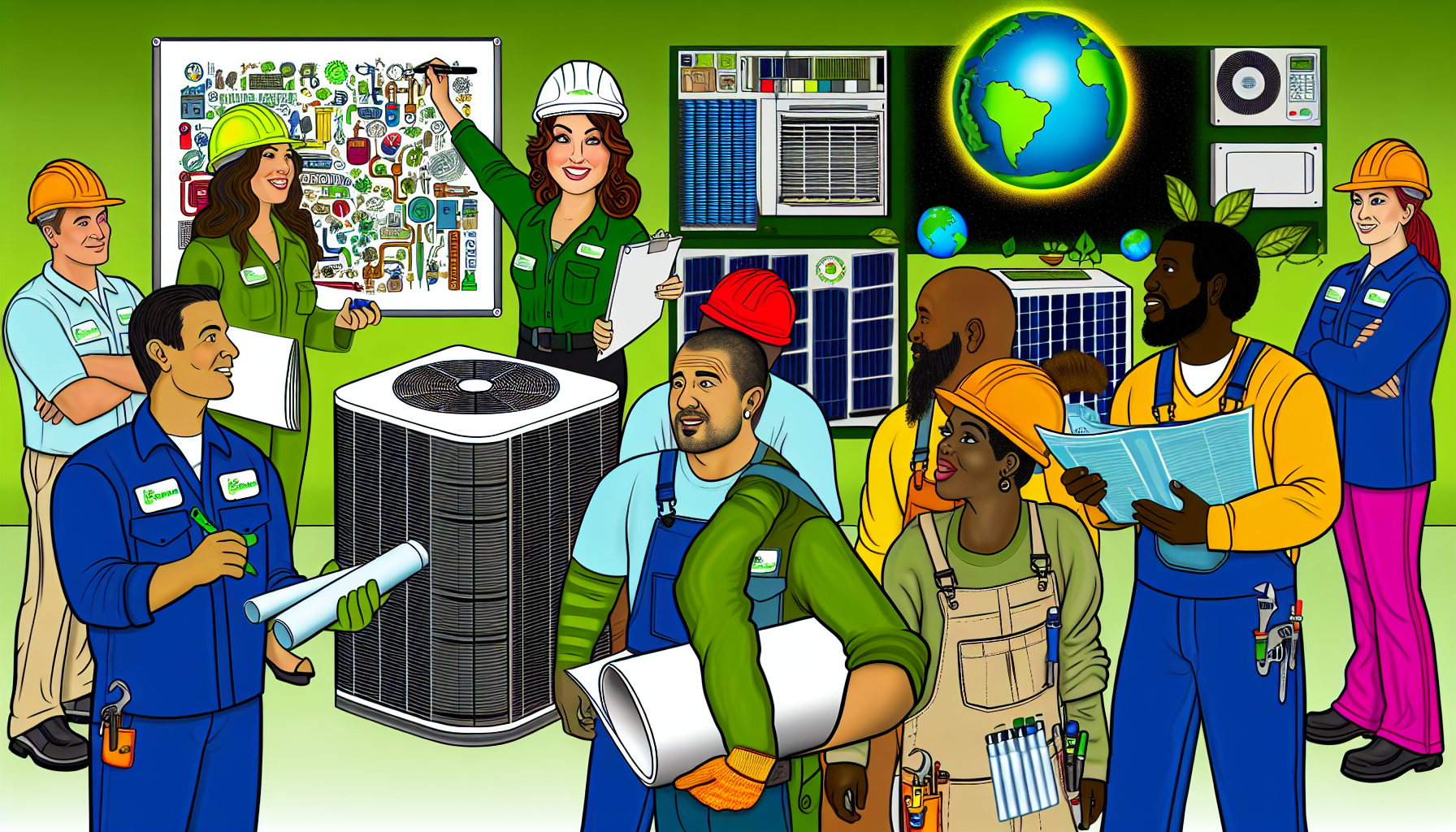Introduction
When it comes to maintaining a comfortable environment in our homes and workplaces, HVAC (Heating, Ventilation, and Air Conditioning) systems play a crucial role. However, as our society grows increasingly conscious of the environmental impact of our choices, it becomes essential to balance the need for skilled HVAC technicians with a commitment to eco-friendly practices. This concern is not only about the HVAC systems themselves but also about the qualifications and approach of the technicians we hire to install, maintain, and repair them.
The Importance of Eco-Friendly HVAC Practices
In the face of climate change, reducing carbon footprints and promoting sustainability is becoming ever more important. HVAC systems are known for their high energy consumption, which can lead to significant emissions of greenhouse gases. By focusing on eco-friendly HVAC practices, we can ensure that we minimize environmental impact while keeping our spaces comfortable.
HVAC Systems and Environmental Impact
Traditional HVAC systems, if not managed correctly and maintained efficiently, can contribute to environmental degradation. This includes the depletion of natural resources, increased energy consumption, and higher emissions. Eco-friendly solutions aim to reverse or mitigate these issues.
The Role of HVAC Technicians
The role of HVAC technicians is pivotal in this balance. They must possess the technical skills needed to competently handle both traditional and advanced eco-friendly systems, have an understanding of energy-efficiency practices, and be aware of the latest green technologies in the HVAC industry.
Evaluating HVAC Technician Skills for Eco-Friendly Services
To ensure that the services provided by an HVAC technician align with environmental sustainability goals, it’s important to evaluate their skill set carefully. The following considerations can guide you in hiring a technician who is capable and conscious of the impact on the environment.
Educational Background and Certifications
- Formal Education: A technician should have a solid background in HVAC systems with a focus on energy efficiency and sustainability.
- Certifications: Look for technicians who hold certifications like NATE (North American Technician Excellence), which often includes environmentally friendly practices as part of its curriculum.
Experience with Eco-Friendly Systems
- Hands-on Experience: Practical expertise with eco-friendly and high-efficiency systems is crucial.
- Continued Learning: The best technicians stay informed about the latest advancements in green HVAC technology.
Understanding of Environmental Best Practices
- Energy-Efficient Practices: Technicians should be familiar with techniques to maximize efficiency and minimize waste.
- Eco-Friendly Refrigerants: Proficiency in handling and recommending refrigerants that have less environmental impact is essential.
Strategies for Minimizing Environmental Impact
There are several strategies and technologies that HVAC technicians should be familiar with to ensure an eco-friendly approach to HVAC system management.
Energy-Efficient Equipment Installation
Technicians should be skilled in installing state-of-the-art systems designed for high efficiency, such as those rated with the Energy Star label, as well as green alternatives like geothermal heat pumps.
Regular Maintenance and Tune-Ups
Eco-friendly HVAC performance often hinges on regular maintenance. A skilled technician should be capable of performing tune-ups that both improve system efficiency and reduce environmental impact.
Smart Device Integration
The incorporation of smart thermostats and other IoT (Internet of Things) devices can lead to substantial energy savings. Technicians should be knowledgeable in installing and programming these devices.
Refrigerant Management
Handling and recycling refrigerants in a manner that is safe for the environment requires specific knowledge and certification to avoid harmful emissions.
Adopting Sustainable HVAC Practices
It’s not enough to simply install eco-friendly systems; sustainable practices need to be adopted in every aspect of HVAC work to truly minimize environmental impact.
Responsible Sourcing and Disposal
Eco-friendly HVAC technicians should practice responsible sourcing of materials and equipment. Additionally, they should be aware of how to properly dispose of or recycle old parts and fluids.
Educating Customers
Part of a technician’s responsibility is to educate customers on how to operate their systems efficiently and make eco-friendly choices for their homes and businesses.
Incorporating Renewable Energy
Understanding the integration of HVAC systems with renewable energy sources, such as solar or wind power, is an attractive skill to further reduce environmental impact.
Conclusion
When hiring an HVAC technician, balancing expertise with a commitment to eco-friendly practices is crucial. Not only does this approach support global sustainability goals, but it also often results in long-term cost savings. By prioritizing these factors, we can contribute to a healthier planet while maintaining our comfort.
FAQ
How can I verify if an HVAC technician is truly skilled in eco-friendly practices?
Look for certifications in energy-efficient systems, ask about their experience with green technologies, and inquire about their approach to environmental sustainability and up-to-date training.
Are eco-friendly HVAC systems more expensive than traditional ones?
While the upfront cost of eco-friendly systems may be higher, they often lead to significant energy savings over time and may be eligible for tax credits or rebates.
What are some of the latest eco-friendly HVAC technologies?
Technologies such as geothermal heat pumps, solar-powered systems, and ductless mini-split systems are among the green options available today.
Is regular maintenance of HVAC systems really that important for the environment?
Yes, regular maintenance ensures systems are running at peak efficiency, reducing energy consumption and the carbon footprint.
Can HVAC systems be powered by renewable energy?
Absolutely. For example, HVAC systems can be integrated with solar panels to use clean energy, reducing reliance on non-renewable power sources.



